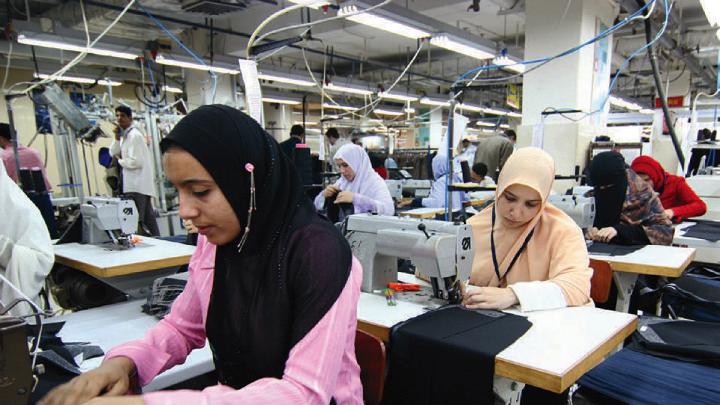In Factory Girls, Leslie T. Change ’91 explored the shift of millions of Chinese women from an age-old rural life into the global manufacturing web (see “Working Sisters,” January-February 2009, page 21). Now, after an immersion in Cairo, she has reported Egyptian Made: Women, Work, and the Promise of Liberation (Random House, $28.99). Among Egypt’s nearly 110 million people—under a suffocating military government, in a stifled economy, conflicted between traditional and modern cultures—she identifies three women in the textile industry whose stories illuminate the larger tapestry. From chapter one:
Almost no one worked in an Egyptian factory because she wanted to. Teenage girls might do it for a while to buy things for their gihaz—the china plates and serving bowls, the big and the small teapots, the bedsheets and nightgowns and 10 or …20 sets of everything they needed in their trousseau before a man would agree to marry them. Some of the older women were divorced or widowed and had children to support. The married ones usually needed money badly enough that their husbands had agreed, reluctantly, to let them work outside the home.
Rania Saeed Mohamed didn’t fit into any of these groups. She was 22 and married but living apart from her husband when she started working at a men’s underwear factory outside the city of Minya. The plant was an hour’s bus ride from her village, and normally a wife would have asked her husband’s permission before taking such a step. But Rania didn’t consult anyone. Unhappiness gave her freedom, although that wasn’t a trade she would have made on her own. As with almost everything else in her life, Rania didn’t have a choice.…
For every Egyptian woman who works, four others stay home. The nation’s percentage of women in the labor force is among the lowest in the world, and the number has stayed flat for the past quarter of a century; among some groups…it has actually fallen. These facts contradict the common belief that globalization will bring opportunity, create jobs for women, and overturn social norms. It did happen this way in Taiwan and South Korea, China, and India, and in conservative Muslim nations such as Malaysia and Bangladesh.…But…the prospects for Egyptian women are getting worse….They’re more focused on making a good marriage and becoming more financially dependent on men. In the experience of these women, globalization has closed more doors than it has opened.








